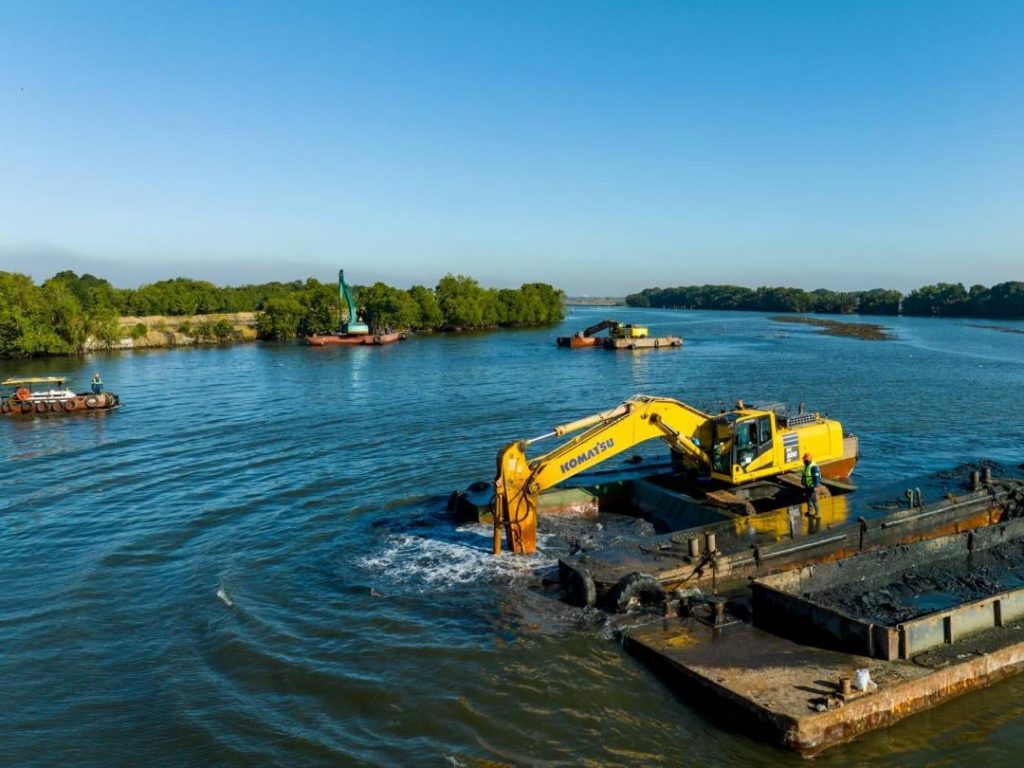MANILA — San Miguel Corporation (SMC) is nearing the completion of its extensive river cleanup project in Bulacan, having removed over 4.2 million tons of silt and waste.
This project, spanning 74 kilometers of waterways, represents the largest volume extracted in SMC’s Luzon-wide initiative.
Part of SMC’s “Better Rivers PH” advocacy, the project is entirely funded by the corporation, with no cost to the government or taxpayers. Launched in 2020, the initiative has previously covered major rivers such as the Tullahan, Pasig, and San Juan in Metro Manila, among others.
The Bulacan cleanup has targeted significant rivers including Taliptip-Maycapiz-Bambang, Meycauayan, Marilao, Mailad-Sta. Maria, Guiguinto, Balagtas, Pamarawan, Kalero, and Labangan-Angat.

“Our river cleanup initiative in Bulacan is now in its second year and is the most extensive of all our cleanups. The total volume of waste and silt we’ve removed—4,255,398 tons—is about twice the combined volume we extracted from the Pasig and Tullahan rivers,” said SMC Chairman and Chief Executive Officer Ramon S. Ang.
With the Bulacan cleanup nearing completion, SMC is now setting its sights on the Pampanga River, with plans to expand efforts in Biñan, Laguna, and Parañaque City.
Ang emphasized the importance of desilting and clearing obstructions in rivers to mitigate flooding, which has worsened due to factors like low-lying geography, deforestation, garbage-clogged waterways, rising sea levels, land subsidence, and excessive fishponds.
Recently, Metro Manila and nearby provinces experienced widespread flooding due to heavy rainfall from Typhoon Carina.
While many areas were affected by flooding, Ang noted that the situation could have been far worse without SMC’s completed river cleanup efforts, which significantly increased the carrying capacity of rivers and ensured their continuous flow.
“Flooding is a complex problem with multiple causes that require various solutions. We cannot conveniently blame it on one factor when many contributing factors have been accumulating over generations,” Ang said.
ia/mnm







